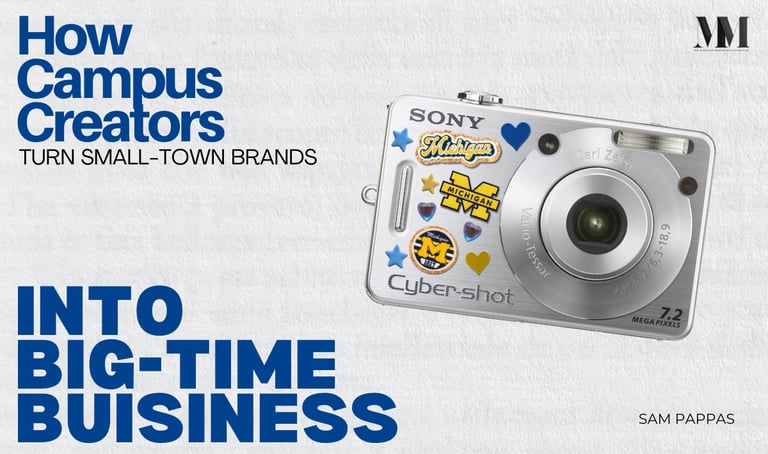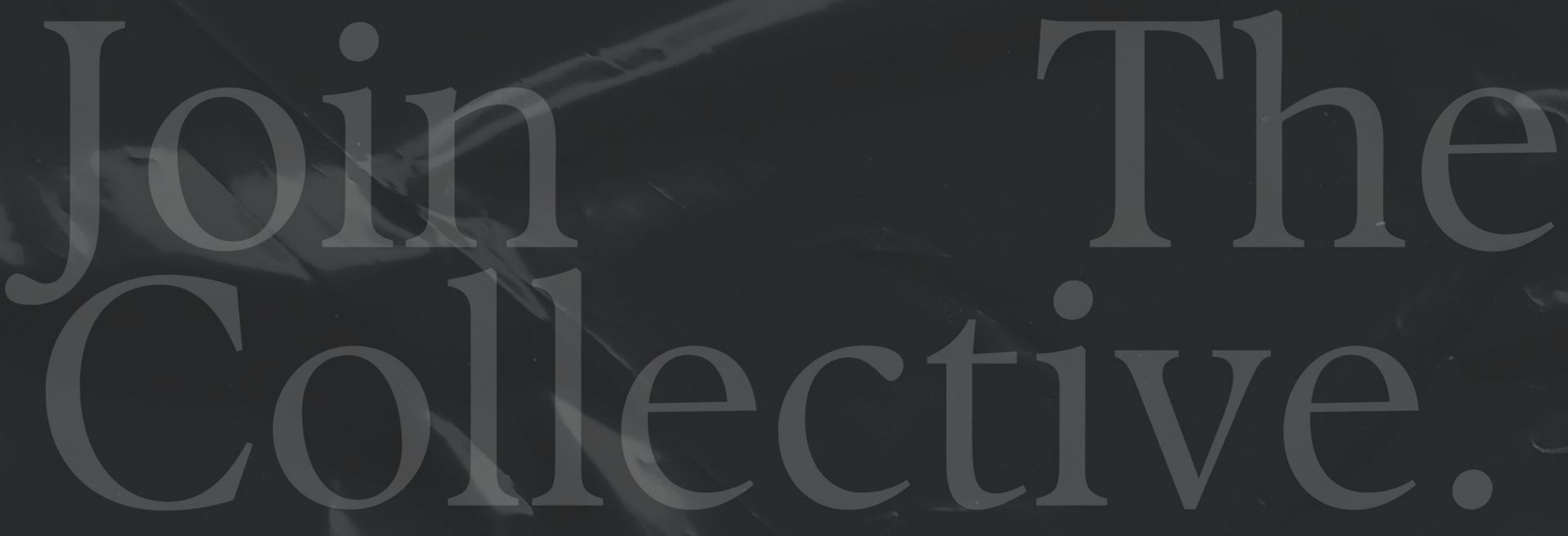How Campus Creators Turn Small-Town Brands Into Big-Time Business
EDITION 1
Sam Pappas
10/30/20253 min read


Cover Design by Audrey Chau
How Campus Creators Turn Small-Town Brands Into Big-Time Business
By Sam Pappas
When you hear the phrase college town, you might think of packed football Saturdays, late-night study sessions, and the unmistakable buzz of student life. But as the digital world continues to shape how we connect, college towns have evolved into something more: hubs of influence, entrepreneurship, and endless possibility. No longer confined to campus boundaries or college stereotypes, these communities have become ecosystems for business to thrive— and fueled largely by the creativity and influence of student creators.
This growing presence of student influencers is reshaping marketing strategies both within Ann Arbor and beyond, turning everyday campus moments into powerful opportunities for connection. Within the Michigan Marketing Club (The MMC), we’ve seen this impact firsthand through members like Kayla Bandow and Erika Petterson, who have built their social presence with Ann Arbor favorites like The Hen, Blue Whale Café, and Raising Cane’s, as well as national brands like Revolve, Poppi, Loft, and SeatGeek. Their work shows how student creators bridge local culture with national reach— proving that influence doesn’t have to come from the top down, but from within the community itself.
Unlike mega-influencers who dominate our feeds, student creators don’t sell a lifestyle; they simply share their lives. They promote the places we know, the routines we recognize, and experiences that feel within reach. Their influence runs deeper, built on trust, proximity, and the power of being relatable. They walk across the same Diag, attend similar classes, and frequent cafés just minutes from their audiences. By drawing on shared experiences and telling stories through a student-lens, their content feels less like promotion and more like an invitation to participate.
Through this connection, student creators tap into one of marketing’s most valuable assets: authenticity. (1) While they may not bring the massive followings of celebrity influencers, their ability to appear genuine cultivates deeper connections and, more importantly, drives real action. Their followers see them as peers, students just like them, so their recommendations feel relatable and carry real weight. True authenticity makes their content feel more natural and trustworthy, driven not by monetization but by genuine experience and honest advice. (2) It’s this kind of connection that turns college campuses into engines of business and culture.
Campus creator Kayla offered her perspective on this, explaining how “student creators understand the rhythm of campus life, whether it’s game days, move-in week, or finals season, and that timing is what makes their content so powerful.” This mix of authenticity, proximity, and timing turns everyday posts into something more— “content” becomes a trusted recommendation from a friend, not an ad. She also explained that her “favorite part [of content creation] is the organic feedback. I’ll get DMs from people —some I know, some I don’t— saying my day in the life or semester recap videos helped them decide to apply or choose the University of Michigan. Hearing that means a lot because it shows the content is making a real impact beyond just sales.”
This authentic, student-driven influence has caught the attention of both local and global businesses, sparking a rise in paid collaborations and particularly, campus ambassador programs. These programs turn students into long-term brand representatives who create content, host events, and drive on-campus engagement. Content creator and social media manager for The MMC, Erika, serves as a campus ambassador for Alex Cooper’s Unwell university, the owner of the network and host of popular podcast, Call Her Daddy. Erika notes, “Campus ambassador programs are such a fun way to connect students with brands, and it’s been an incredible opportunity for me to learn how to build my own brand and presence online.” Beyond brand awareness, harness one of marketing’s oldest and most powerful forces: word of mouth. Research shows that college students are four times more likely to make a purchase when referred by a friend — and campus ambassadors are seen as trusted peers who carry more influence than traditional ads. (3)
College towns have grown into much more than centers of education; they’re catalysts for business growth. Here, the next generation of creators and marketers are rewriting what success looks like, blurring the line between community and commerce. In the end, college towns prove that big marketing ideas don’t just come from big cities — they start right here, in the hands of students shaping their communities.
(1) https://nytlicensing.com/latest/marketing/why-do-brands-need-authenticity-marketing/
(2) https://ronntorossian.com/influencer-marketing-on-college-campuses-what-works-and-what-doesnt/
(3) https://oncampusadvertising.com/college-brand-ambassadors-important/

